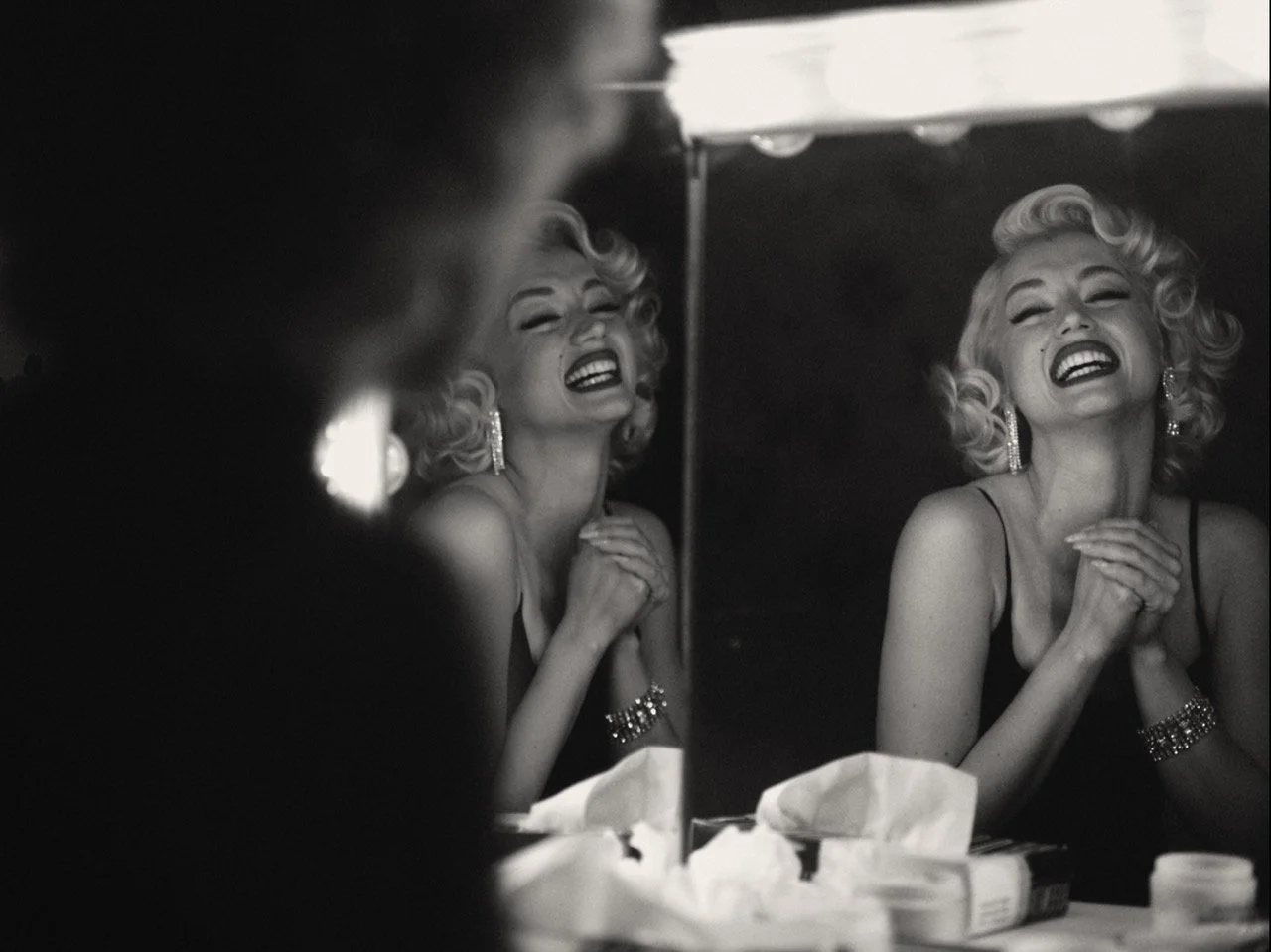Blonde: Much-Hyped Marilyn Monroe ‘Reimagining’ Stylish but Tawdry
By Kim Hughes
Rating: C
It might be the scene where the nascent fetus begins talking to its bombshell mother from inside the womb.
Or maybe it’s the scene where a prostrate, barely clothed-but-for-a-back-brace JFK gets head from the film’s zonked-out movie-star heroine while calling her a “dirty slut” within earshot of the secret service.
It certainly could have been during one of the countless, pointless topless scenes and or one of the countless, impressionistic abortion scenes littered throughout.
But somewhere within its bum-numbing 166-minute running time, it becomes sadly, abundantly clear that writer-director Andrew Dominik’s much-hyped and visually arresting Blonde — based on the fictional novel of the same name about Marilyn Monroe by Joyce Carol Oates— is more Jobs than Walk the Line with a smidge of Showgirls tossed in.
Which is too bad, because Ana de Armas is magnificent as Norma Jean, her every expression and movement embodying the late star and suggesting countless hours of research and rehearsal.
But the movie surrounding this possibly career-best performance is an overheated dud save also some genuinely novel camera work, notably in a threesome scene where intertwined bodies melt into a rolling taffy wave.
Shifting between colour and black and white, the filmmaker also frequently and effectively conflates off-screen with on-screen action, blurring the lines between his protagonist’s real world and make-believe one, underscoring her conflicted pinup persona.
Conceptually, Dominik’s decision to adapt Oates’ novel is interesting and, had it worked, might have yielded a fresh perspective on Monroe, whose much-examined life surely has little left to yield, thanks ironically to the Netflix documentary The Mystery of Marilyn Monroe: The Unheard Tapes which adapts Anthony Summers’ Goddess: The Secret Lives of Marilyn Monroe and which began airing earlier this year.
This Netflix venture feels gratuitous and excessive; could anyone really have been as systematically abused, violated, put-upon, smacked down and dragged out as this Norma Jean and still been wildly successful? In the context presented here, her suicide makes perfect sense.
Blonde follows Monroe chronologically, opening with her awful, abusive childhood at the hands of a mentally unstable mother who didn’t want her and blames her for the detonation of her relationship with Norma Jean’s unnamed father, who stalks the film’s margins.
Norma Jean has daddy issues alright. It’s the film’s running theme, which most disturbingly manifests with Marilyn calling husbands Joe DiMaggio and Arthur Miller (Bobby Cannavale and Adrien Brody, respectively) “daddy” in that breathy little girl voice. She also struggles powerfully with her inability to have a child.
But this hardly consolidates or explains Monroe’s writ-large vulnerability. The well-documented issues of her insecurities about acting and her disruptive on-set reputation go unexamined. The rape that allegedly launched her career as depicted here may or may not have happened. But it ups the exploitative-at-all-costs feel of the film.
If there’s one thing we have learned definitively in the years since Monroe’s 1962 death, it’s that she was anything but a one-note star. Clashing with Billy Wilder while filming Some Like it Hot is shown in Blonde but Monroe also worked with heavyweights John Huston, Laurence Olivier, and George Cukor. Was no triumph worth including?
Monroe was smart enough to have agency over her work and was notoriously unshy about leveraging relationships within and outside Hollywood to abet her ambition. Blonde tells its bloated story in a perverse search to unearth only the tawdry. Not the film an icon of this stature deserves.
Blonde. Written and directed by Andrew Dominik based on the fictional novel Blonde by Joyce Carol Oates. Starring Ana de Armas, Adrien Brody, and Bobby Cannavale. Opening in select cinemas September 23 and on Netflix September 28.



